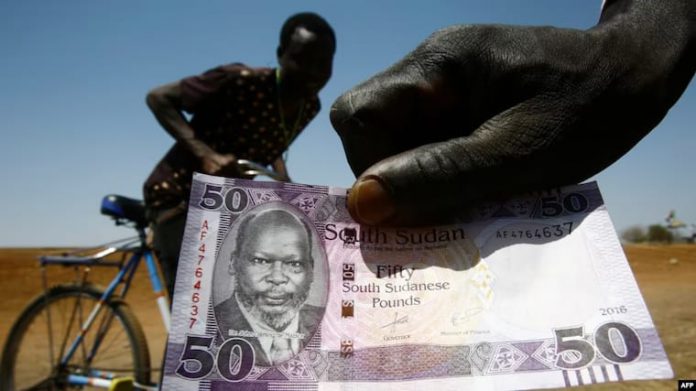Hackers who identified themselves as “Anonymous South Sudan” recently seized control of the Central Bank of South Sudan website and demanded a drastic cut in the dollar exchange rate to 400 South Sudan Pounds (SS£), which is more than half of the current rate.
The official exchange rate was already at SS£ 844.5 to one US dollar, with the black market rate averaging SS£ 950/dollar.
The South Sudanese pound has been losing strength, particularly due to high global commodity prices and increasing prices of imports from Uganda, the main source of food supply, leading to high inflation.
Governor of the Bank of South Sudan, Johnny Ohisa Damian, acknowledged that the currency decline was not limited to the South Sudanese pound, but was a global phenomenon with many countries suffering against the strength of the US dollar.
He also cited the increase in prices of imported goods, particularly from Uganda, which rose by more than 50% in January, as a significant factor contributing to the high inflation in South Sudan.
The Monetary Policy Committee has tried to halt the depreciation of the South Sudanese pound by raising the interest rate from 13% to 15% in March, and issuing a ban on the use of US dollars for domestic transactions in February.
However, these measures have not been effective, as most transactions in the country were being conducted in dollars, with 77% of deposits at commercial banks in dollars, according to a report in March.
Governor Damian announced that the Bank of South Sudan would sell $5 million weekly into the market, with the possibility of increasing the amount if necessary, to address the currency crisis.
He also emphasized that South Sudan is not alone in facing economic challenges, as the strengthening of the US dollar has impacted other currencies as well.
In comparison, the Uganda shilling has also experienced fluctuations against the US dollar, currently exchanging at Shs 3,732 according to the Bank of Uganda’s Tuesday mid-day trading update.











